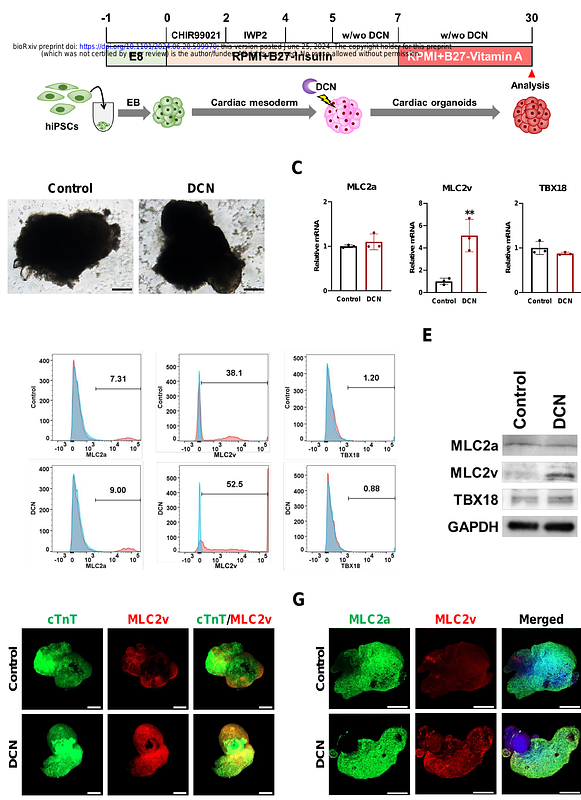Decorin promotes cardiac organoid maturation by activating AMPK-PGC1A pathway to enhance cardiac metabolism and mitophagy

Decorin promotes cardiac organoid maturation by activating AMPK-PGC1A pathway to enhance cardiac metabolism and mitophagy
Lim, D.-S.; Song, M.-H.; Jun, S.; Choi, S.-C.; Na, J. E.; Rhyu, I. J.; Hwang, S. W.; Jeon, M.
AbstractRationale: Cardiac organoids (COs) are advanced models for investigating heart development and disease, while require maturation to resemble the structural and functional characteristics of the human heart. Objective: This study reveals the role of DCN contributes to the mature and vascularized COs and assesses the biological mechanism responsible for CO maturation. Methods and Results: DCN-treated COs exhibit structural maturation involving aligned sarcomere, mitochondria, and t-tubule structures, and vessel formations, as well as functional maturation involving synchronized contraction-relaxation, Ca2+ transient, and increases ion channel expressions. DCN-treated COs also show metabolic maturation, including enhanced fatty acid oxidation and increased mitophagy. Transcriptional profiling results indicate that DCN-treated COs have increased levels of AMPK signaling and mitophagy. In DCN-treated COs, AMPK knockdown affects mitochondrial biogenesis, cardiac metabolism, ion channels, and mitophagy. Conclusions: These findings indicate that DCN is crucial for development of mature, vascularized COs and that CO maturation is primarily regulated through AMPK signaling, which is triggered by DCN.


